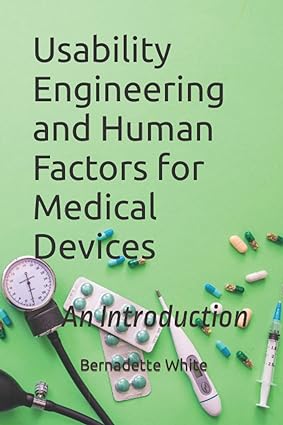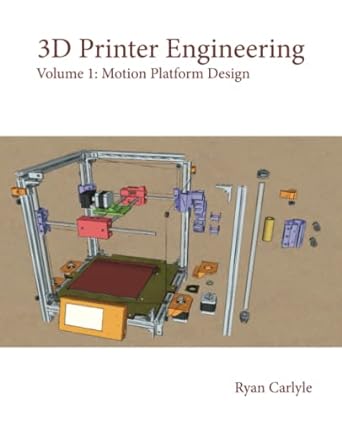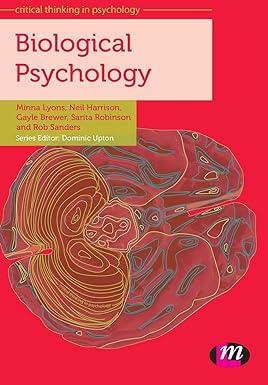Go back


Usability Engineering And Human Factors For Medical Devices An Introduction(1st Edition)
Authors:
Bernadette White

Cover Type:Hardcover
Condition:Used
In Stock
Include with your book
Free shipping: April 04, 2024Popular items with books
Access to 3 Million+ solutions
Free ✝
Ask 10 Questions from expert
200,000+ Expert answers
✝ 7 days-trial
Total Price:
$0
List Price: $24.99
Savings: $24.99(100%)
Book details
ISBN: B09T8L8JT5, 979-8680239209
Book publisher: Independently published
Get your hands on the best-selling book Usability Engineering And Human Factors For Medical Devices An Introduction 1st Edition for free. Feed your curiosity and let your imagination soar with the best stories coming out to you without hefty price tags. Browse SolutionInn to discover a treasure trove of fiction and non-fiction books where every page leads the reader to an undiscovered world. Start your literary adventure right away and also enjoy free shipping of these complimentary books to your door.
Usability Engineering And Human Factors For Medical Devices An Introduction 1st Edition Summary: A short introduction to Usability in paperback- the perfect pocket book-Recent changes in regulation (e.g. MDR 2017/745) have increased the focus on usability requirements for medical devices. With stronger references to risks associated with use error and foreseeable misuse now requiring manufacturers to respond to foreseeable misuse. This short book introduces Usability Engineering and Human Factors Engineering providing a grounding in the principles of UE/HFE and the deliverables expected by manufacturers.As medical device vary in classification, complexity, cost and intended use, it is not feasible to provide a ready-made solution for device usability. However, if usability is integrated into the product development processes and risk management processes it can achieve devices that have minimal use related hazards.If medical devices are designed and developed without applying a usability engineering or human factors engineering, their use can be non-intuitive, difficult to learn, difficult to complete tasks and difficult to use. Furthermore, as technology and medical devices offer more innovative solutions, patients can now be tasked with using medical devices or administering their treatments, therefore usability becomes more important.While the goal of design should aim to provide medical devices that are inherently safe, as with most medical devices, residual risks remain once a product is designed, manufactured and validated clinically. Use errors or Usability errors contribute to those potential risk scenarios where medical device usability is an issue for the user. With the increasing abundance of medical devices is the observation, treatment and monitoring of patients, use errors must be assessed for medical devices and reduced to an acceptable level. In contrast to safety inherited by design, the least and often the last protective measures are warnings or contraindications provided on labelling or instructions for use.The strength of applying usability engineering principles (aka human factors engineering) medical devices is that use errors can be identified and mitigated through design and engineering practices, early-on in the product development and product realization cycle. Medical devices designed and developed devoid of usability engineering, are less intuitive, difficult to use and require focus and attention to learn to use them effectively. In addition, usability is a growing requirement from a regulatory perspective.A strength of this short book is its focus on the themes of usability, risk management and design control which interact together and if managed early-on in projects can benefit the user and deliver medical devices optimised for usability and human factors. At approx. 73 pages, this book does not intend to provide an expensive textbook solution to Usability, alternatively, it is a concise guide offering a 'to-the-point' reference at great value.
Customers also bought these books
Frequently Bought Together
Top Reviews for Books
Meera Pathmanathan
( 5 )
"Delivery was considerably fast, and the book I received was in a good condition."










